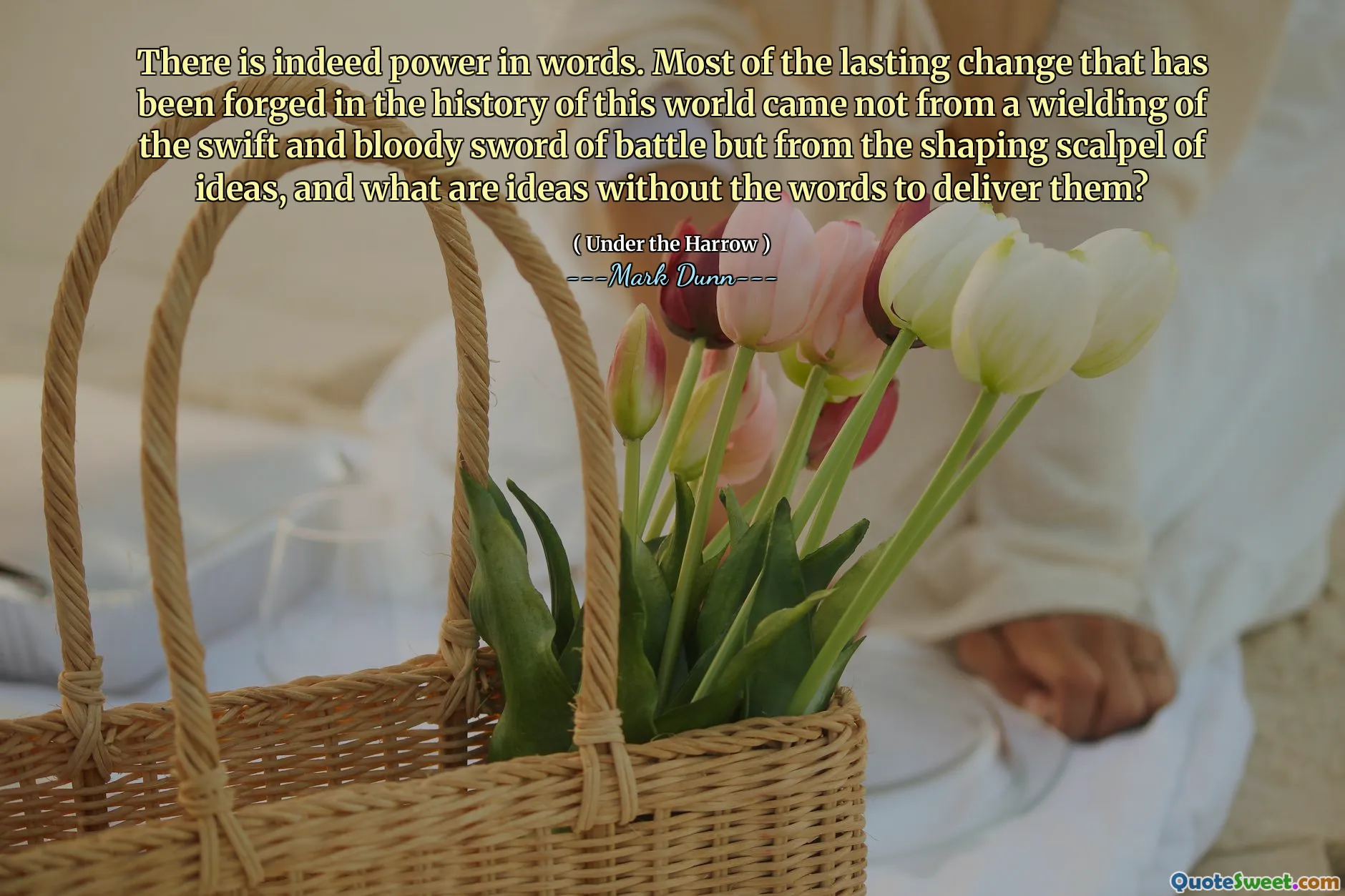
There is indeed power in words. Most of the lasting change that has been forged in the history of this world came not from a wielding of the swift and bloody sword of battle but from the shaping scalpel of ideas, and what are ideas without the words to deliver them?
This quote emphasizes the profound impact that words and ideas have on shaping our world, often surpassing the influence of physical force or violence. Throughout history, significant societal transformations—such as revolutions, civil rights movements, scientific breakthroughs, and philosophical evolutions—have largely been driven by the power of language. Words can inspire, persuade, and educate, creating a ripple effect that changes perceptions and motivates collective action. For instance, speeches like Martin Luther King Jr.'s "I Have a Dream" or writings like the Declaration of Independence showcase how language has been used as a scalpel to carve new realities and challenge outdated systems. The metaphor comparing ideas to a scalpel highlights their precision and transformative power—less destructive than a sword but potent in reshaping minds and societies. Without the appropriate words, even the most groundbreaking ideas risk losing their influence; language is the vessel through which ideas are communicated, understood, and embraced. In today's era of rapidly spreading information, the true power lies in words—effective, persuasive, and resonant—that can instill new perspectives and drive meaningful change. This underscores the importance of thoughtful communication, education, and dialogue in fostering progress. Ultimately, the quote reminds us that the enduring force for positive change is rooted in ideas expressed through carefully wielded words rather than violence or conflict, underscoring the unassailable strength of intellectual and linguistic influence.




